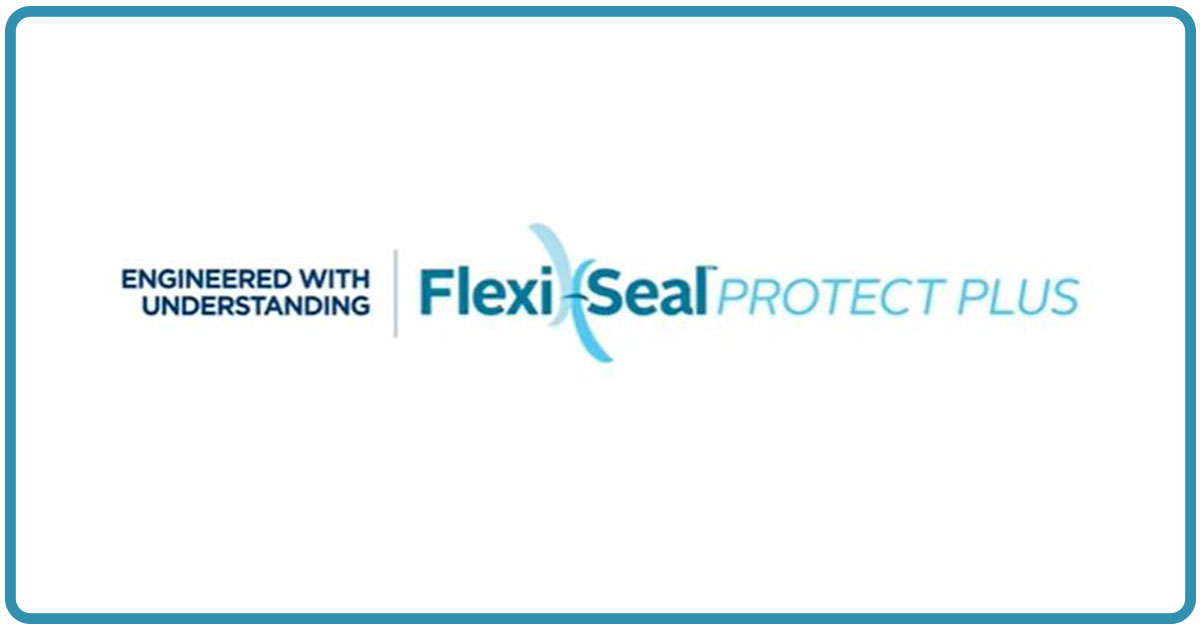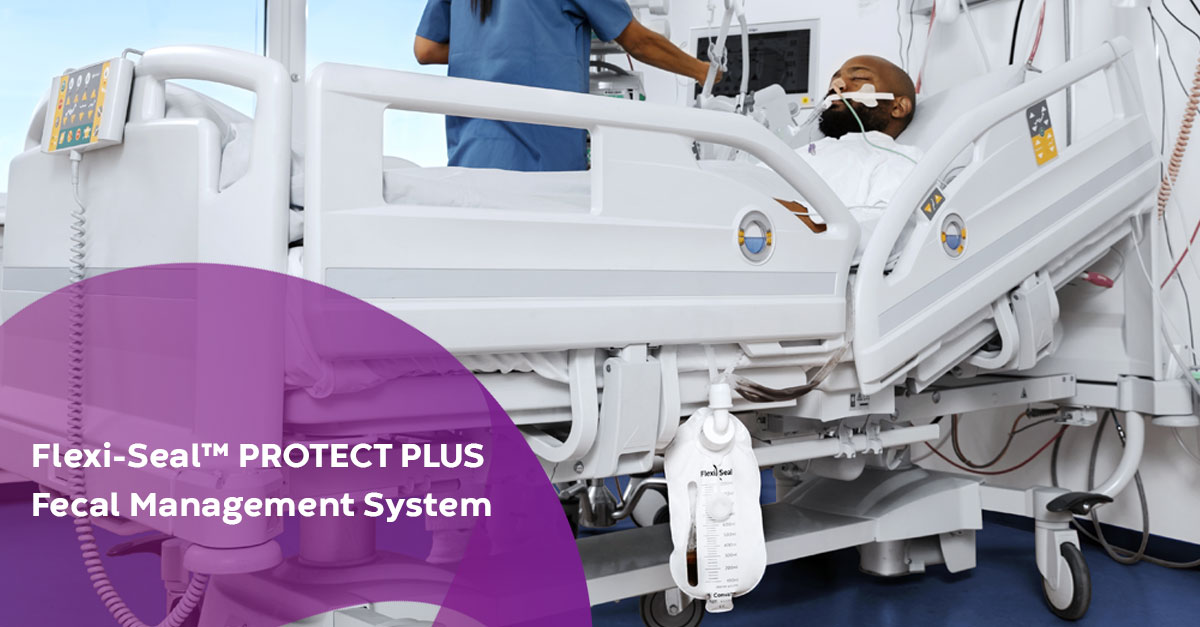Up to 30% of patients admitted to the ICU experience fecal incontinence1 (FI) during their hospital stay. A serious threat to patients, FI also poses a significant challenge to hospitals to tackle. Fecal incontinence leads to:
1. Additional patient suffering

In addition to the prevailing condition that brought them to the ICU, patients could have an undignified experience if FI is not taken care of effectively. Hospitalized adults with fecal incontinence are 22 times more likely to develop pressure ulcers than patients without FI2.
2. Increased cross-contamination risk

C. difficile is shed in feces and can be transferred to patients mainly via the hands of healthcare personnel who have touched a contaminated surface or item 3. In the USA, 1 in 5 patients with a healthcare- associated C. difficile infection experiences a recurrence of the infection4.
3. A heavy burden for health systems & HCPs
 FI negatively impacts the treatment outcome, requiring the allocation of significant resources and leading to prolonged patient suffering. If FI is not managed effectively additional and non-reimbursable costs can skyrocket.
FI negatively impacts the treatment outcome, requiring the allocation of significant resources and leading to prolonged patient suffering. If FI is not managed effectively additional and non-reimbursable costs can skyrocket.
C.difficile infections result in approximately 3 million cases of diarrhea and colitis in the United States each year 5 incurring US$6.3 billion in excess medical cost annually 6.
Discover the benefits for patients & caregivers
Flexi-Seal™ PROTECT PLUS Fecal Management System is an indwelling fecal management catheter intended for use to manage fecal incontinence through the collection of liquid to semi-liquid stool and to provide access to administer medications. The device is intended for use in adult patients.
The new Flexi-Seal™ PROTECT PLUS is designed with understanding to provide a safe, effective and dignifying solution to fecal management.
Flexi-Seal™, which is designed to help improve outcomes of patients, suffering from FI, has been shown to reduce complications and costs associated with FI in the hospital setting 2.
We make fecal management our priority,
so it doesn’t have to be yours.

References :
- Bayón García, Cristina & Binks, Rachel & De Luca, Enrico & Dierkes, Christine & Franci, Andrea & Gallart, Elisabet & Niederalt, Georg & Wyncoll, Duncan. (2012). Prevalence, management and clinical challenges associated with acute faecal incontinence in the ICU and critical care settings: The FIRSTTM cross-sectional descriptive survey. Intensive & critical care nursing: the official journal of the British Association of Critical Care Nurses. 28. 242-50.
- Langill M, Yan S, Kommala D, et al. A Budget Impact Analysis Comparing use of a Modern Fecal Management System to Traditional Fecal Management Methods in Two Canadian Hospitals. Ostomy Wound Management 2012; 58(12)25-33.
- CDC FAQ on C. difficile. Available at: http://www.cdc.gov/cdiff/index.html, Accessed 25th of October 2019.
- Lessa FC, Mu Y, Bamberg WM, Beldavs ZG, Dumyati GK, Dunn JR, et al. Burden of Clostridium difficile Infection in the United States. New England Journal of Medicine. 2015;372(9):825–34.
- Schroeder MS. Clostridium difficile-associated diarrhea. Am Fam Physician. 2005;71(5);921-928.
- Zhang S, Palazuelos-Munoz S, Balsells E M, Nair H, Kyaw M H. Cost of hospital management of Clostridium difficile infection in United States—a metaanalysis and modelling study. BMC Infect Dis. 2016; 16(1): 447.
